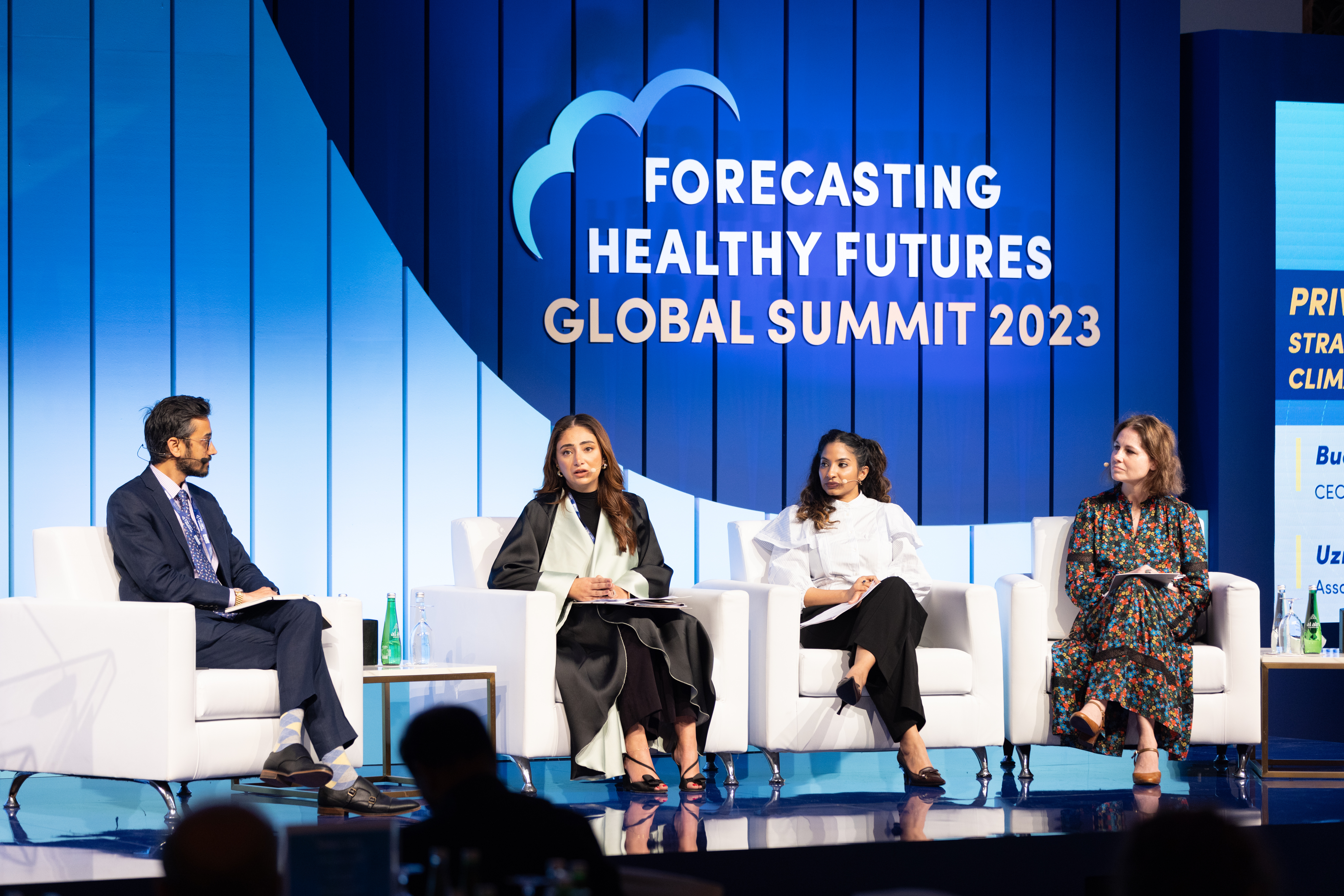Abu Dhabi, United Arab Emirates, March 16, 2023 – Forecasting Healthy Futures, in partnership with Reaching the Last Mile, this week hosted the inaugural Forecasting Healthy Futures Global Summit in Abu Dhabi.
Amid growing concerns about the adverse effects of climate change on human health and disease control and elimination efforts, the Summit brought together a diverse group of nearly 200 leaders representing 140 organizations and more than 40 countries from government, private sector, NGOs, global finance institutions and higher education with the goal of moving the global health community toward proactive solutions and substantial financing for climate-adaptive health strategies ahead of COP28 in Dubai later this year.
WHO Director-General, Dr. Tedros Adhanom Ghebreyesus, opened the Global Summit on Tuesday: “The climate crisis affects all of us so all of us must work together to respond across borders and across sectors to build a healthier, fairer and more sustainable future for all of us.”
Marina Romanello, Executive Director of the Lancet Countdown for Climate and Health Action, then provided a keynote address, detailing the ways in which climate change is jeopardizing the lives and livelihoods of millions around the world. She noted, “Climate change is about us, our health, and our future… We have to do what the World Health Organization named as primary prevention: mitigate against rising temperatures and reduce pressures on our health systems.”
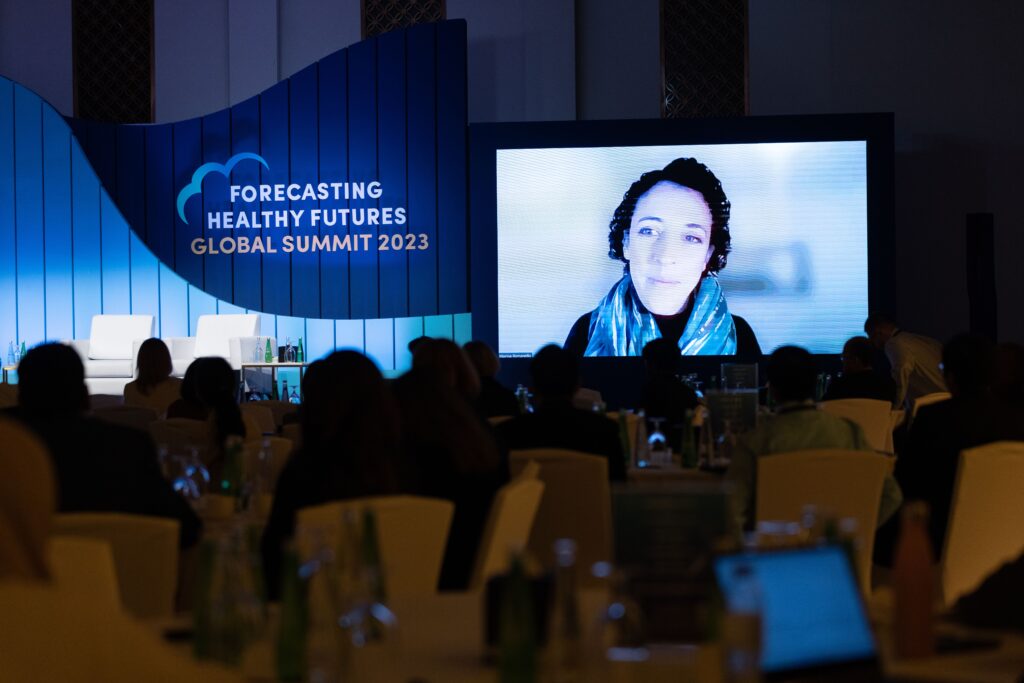
“Given the high and growing impact of climate change on the health and wellbeing of our societies, COP28 has identified health as a priority and is committed to advancing the integration of the health and climate agendas and mainstreaming health, from air pollution to communicable diseases," His Excellency Majid Al-Suwaidi, Director General of COP28, said in a keynote address to the summit.
“We must work together to ensure that this is a COP of solidarity, which bridges the global North and South and brings in all stakeholders including the private sector, scientists, civil society, Indigenous peoples, women, and youth, leaving no-one behind. Through an inclusive approach, we hope COP28 can find solutions, and outcomes, across healthcare, mitigation, adaptation, loss, and damage.”
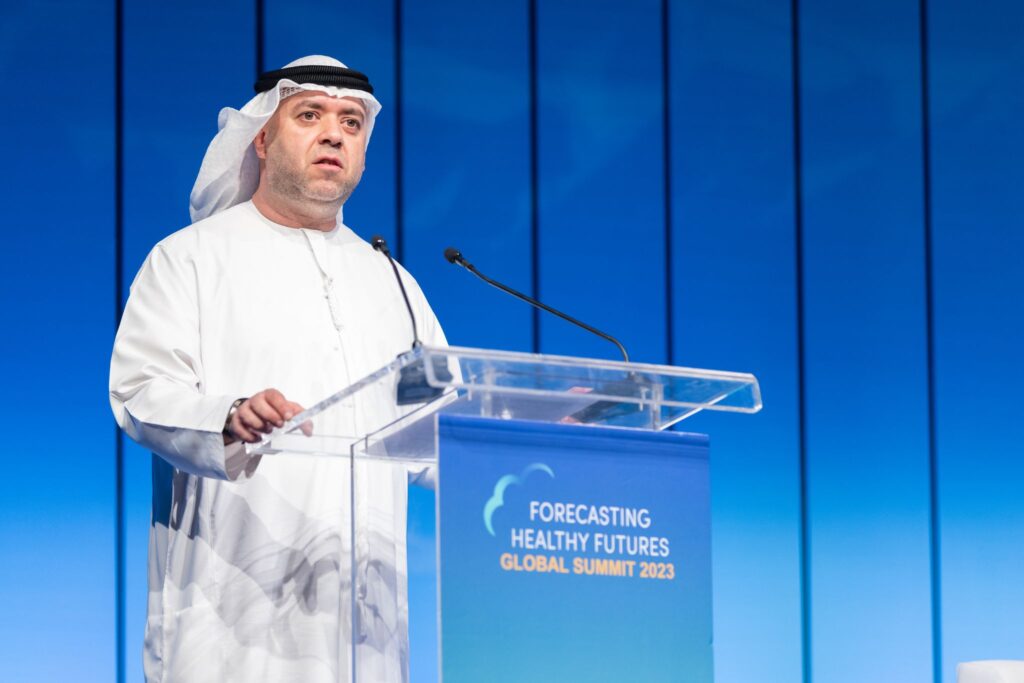
Sessions throughout the 3-day Summit covered:
- Strategies to build climate-resilient health systems
- High impact climate-adaptive health interventions
- Predictive AI for effective disease control and elimination
- Health sector investment opportunities for climate adaptation funds
“Climate adaptation must begin with health, and with building equitable and resilient healthcare systems that can protect the most vulnerable. At Reaching the Last Mile, we know first-hand how innovation and committed partnership can drive transformative action in support of better global health outcomes – and this approach is needed now,” said Tala Al-Ramahi, Co-Chair of the FHF Global Summit Steering Committee and a Director of Reaching the Last Mile. “Building on the progress made here at the Forecasting Healthy Futures Global Summit, and in the lead-up to COP28, we must seize the opportunity to elevate health in the climate agenda, and to catalyze global expertise, innovation, and finance to ensure no country or community is left behind.”
Since its launch in 2020, Forecasting Healthy Futures, a consortium of leading health and technology organizations convened by Malaria No More with seed funding provided by Reaching the Last Mile, has worked to drive innovation and investment in new strategies and technologies to protect global health gains from the impacts of climate change.
In January 2022, Forecasting Healthy Futures launched the Institute for Malaria and Climate Solutions (IMACS), a global institute committed to supporting malaria elimination efforts through the use of increasingly sophisticated prediction and planning tools, and the technical assistance and supportive policies needed to help governments use them to counter the volatile effects of global warming and extreme weather events.
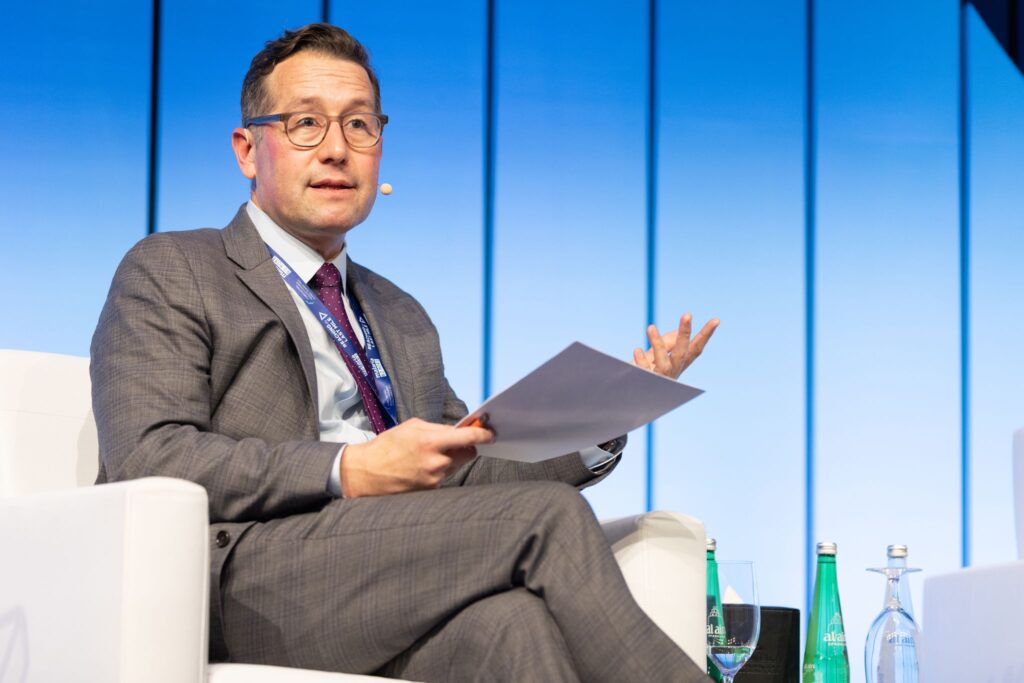
“Extreme weather events are followed by extreme health events, while gradual climate changes are expanding the burden of water-borne, mosquito-borne, and pulmonary disease, intensifying heat stress, and putting new pressures on already frayed health systems,” said Martin Edlund, Chief Executive Officer for Malaria No More. “Forecasting Healthy Futures is demonstrating that scalable, investible solutions exist to protect the health of the most vulnerable people and communities in the context of climate change.”
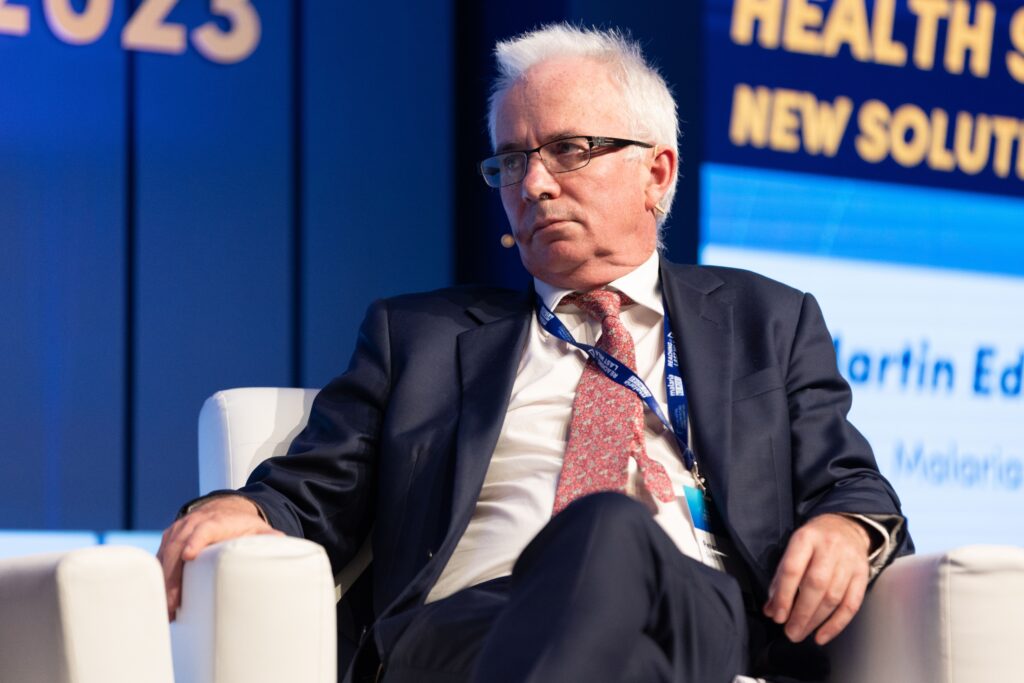
“We know that climate change will increasingly damage people’s health and will hit the poorest the hardest. It is already hampering efforts to eradicate the world’s deadliest diseases, for example where the increase in flooding attracts mosquitoes, leaving more women and children vulnerable to malaria,” noted Peter Sands, Executive Director of The Global Fund. “As countries grapple with limited health budgets, it’s critical that climate adaptations include investing in building climate resilient health systems.”
“In order to fully address the tremendous health challenges caused by climate change, we must stimulate innovation to test and scale new solutions. Doing so will require philanthropic, public sector and private sector capital working in concert to create and scale effective climate adaptations,” said Dr. Neil Buddy Shah, CEO of the Clinton Health Access Initiative. “It’s time we break down siloes and encourage aligned efforts and collaboration between the private, non-profit and public sectors.”
“New tools and approaches, and smarter use of current tools will be key for building climate-smart systems that adapt to current and emerging diseases and shifting disease habitats. It will take leaders from across disciplines and sectors working together to stay ahead of the global health challenges posed by a changing climate,” Trevor Mundel, Global Health President for the Bill and Melinda Gates Foundation told summit participants in a video.
“Even though climate change is universally impacting human health, fortunately, AI is uniquely positioned to help mitigate those negative impacts,” said Dr. Hosni Ghedira, Director of Research Engagement at Mohamed bin Zayed University for Artificial Intelligence. “Through the use of AI, innovation and technology are significantly bolstering efforts across climate research to detect, adapt and respond to climate change across many sectors.”
For more information on Forecasting Healthy Futures, visit www.ForecastingHealthyFutures.org and explore photos from the Summit here.
###
About Forecasting Healthy Futures
Forecasting Healthy Futures is a global coalition of leading health and technology organizations committed to mobilizing the political will, financial resources, and innovative solutions needed to protect global health gains from the threats posed by climate change. Malaria No More convenes and leads the consortium. Forecasting Health Futures’ partners include Reaching the Last Mile, Mohamed Bin Zayed University of Artificial Intelligence, the Global Institute for Disease Elimination (GLIDE), PATH, the Tableau Foundation, IBM’s Weather Company, and the Institute for Health Metrics and Evaluation (IHME). For more information, visit: www.ForecastingHealthyFutures.org.
About Malaria No More
Malaria No More envisions a world where no one dies from a mosquito bite. More than a decade into our mission, our work has contributed to historic progress toward this goal. Now, we’re mobilizing the political commitment, funding, and innovation required to achieve what would be one of the greatest humanitarian accomplishments – ending malaria within our generation. For more information, visit www.MalariaNoMore.org.
For media inquiries, please contact: Mindy Mizell | Malaria No More, Sr Manager Media Relations & Communications, mindy.mizell@malarianomore.org |+1.202.355.3690
About Reaching the Last Mile
Reaching the Last Mile (RLM) is a portfolio of global health programs working towards disease elimination that is driven by the personal commitment of His Highness Sheikh Mohamed bin Zayed, President of the United Arab Emirates. The Initiative provides treatment and preventative care in communities that lack access to quality health services, with a specific focus on reaching the last mile of disease elimination. RLM’s mission represents His Highness’s dedication to ending preventable diseases that affect the world’s poorest and most vulnerable communities and helping millions of children and adults live healthy, dignified lives. For more information, visit: https://www.ReachingTheLastMile.com
For media inquiries, please contact: Sharan Sunner | Seven Media, on behalf of Reaching the Last Mile, sharansunner@sevenmedia.ae | +971 (0)55 698 4327
